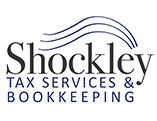The new tax bill is the biggest sweeping change in taxes in 3 decades. Small businesses will need professional help navigating the details of the new bill and understanding how it affects them. It’s highly recommended that a CPA or tax expert is hired to assist business owners on not only how to file 2018’s taxes, but also how to set up 2019 to get the best possible tax breaks for small businesses.
Small business taxes must be accurately accounted for, so this is a perfect time to build a relationship with a tax expert and let them do the heavy lifting so you can focus on building your business.
Although it’s too complicated to detail all the ins and outs of the new tax law, here are some of the positive takeaways from the Tax Cuts and Jobs Act President Trump signed:
1. A 20% Business Income Deduction Will Apply to Many Small Businesses
The new tax reform bill gives sizable tax cuts to large companies or C corporations (from 35% – 21%). If you are a small business, you are likely either a sole proprietor, S corporation, partnership, or LLC. Small businesses are pass-through entities that pay business taxes on their personal tax returns at the same individual rate as other people.
Congress gave small businesses a tax cut by initiating a new tax deduction called the 20% Qualified Business Income Deduction. For individuals that make less than $157,500 (filing as an individual) or $315,000 for couples (married filing jointly), they could possibly get up to 20% of their net income. (I took out this last sentence because it is way more complicated than this.)
If your personal taxable income is higher than 157K (individual) or 315K (married) you can still get a deduction, but limits apply. Your CPA or tax adviser can help you with the details.
2. Tax-Free Opportunities to Pass More Wealth to the Next Generation
Estate planning includes an estate tax which applies when a person’s estate transfers at their death to new owners, and the estate value is more than an exclusion amount (an amount which has changed a lot over the years).
The exclusion amount was $675,000 in 2000, but there was no exclusion amount in 2010. The new tax reform bill exclusion amount is $11.9 million for individuals or $22.36 million for married couples. Therefore, more small business owners can pass on their business tax-free if their estate is valued under the exclusion amount.
Additionally, under the new tax reform bill, the annual Gift Tax exclusion amount increased to $15,000, which means you can gift anyone up to $15,000 a year without being taxed. Just think of the opportunity small business owners have to leave a financial legacy to their children and grandchildren with these new changes. Contact your CPA or tax advisor for more details.
3. 100% Bonus Depreciation
Tax deductions for gradual wear and tear of certain property is considered depreciation. Different kinds of property depreciate on different depreciation schedules. Bonus Depreciation was passed in 2002 and sped up the depreciation process, getting you tax savings quicker. Bonus Depreciation lets you immediately deduct a big percentage (for instance, 30% for a computer) in the first year. 2015 increased the deduction to 50% in the first year. Amazingly, the new tax reform bill increases the deduction to 100% until 2023. While real estate doesn’t qualify, personal property used for your small business qualifies: equipment, computers, software, and office furniture. Talk with your CPA or tax advisor to make the most of the Bonus Depreciation.
4. Standard Deduction Is Higher than Itemized Deduction
Less people will claim a mortgage interest deduction on their taxes because more people will take the standard deduction due to its increase from $6,350 to $12,000 for singles, and from $12,700 to $24,000 for married couples filing jointly. Rather than itemizing deductions individually, many will take the standard deduction because it is so high now.
The mortgage interest deduction is limited to new mortgages that are less than $750,000 (it was 1 million in 2017). Mortgages that began before 2018 (at 1 million or less) will keep their mortgage interest deduction.
5. Retroactive Tax Refunds
If you had to pay taxes in 2015-2017, you can actually get a 3-year review of your taxes to discover any tax savings you may have missed out on. You may find out you qualify for a retroactive tax refund. This law wasn’t changed in the tax reform bill, and the fact that it stayed in place could mean money from the IRS for you if you overpaid them over the last 3 years.
Understand that there are a myriad of details associated with the new tax bill, and the best way to navigate these details is with the help of a CPA or a qualified tax advisor like Shockley Bookkeeping of Broken Arrow, Oklahoma.
Get the Tax Help You Need and Avoid Tax Surprises
Small businesses have specific needs when it comes to taxes, and Shockley Bookkeeping is here to help protect your business and avoid surprises. Shockley Bookkeeping helps small businesses:
- File accurate taxes
- Avoid tax liability surprises
- Save money by taking advantage of all possible tax deductions and tax credits
- Gain sound tax advice to help you plan for next year’s taxes
Small business owners who want to strategically prepare for 2019 taxes now gain by seeking counsel from a tax expert for tax strategies to put into place for their future.
Small business taxes can be complicated, so take advantage of the qualified professional assistance from the tax experts at Shockley Bookkeeping. See our small business tax services and schedule a consultation.

